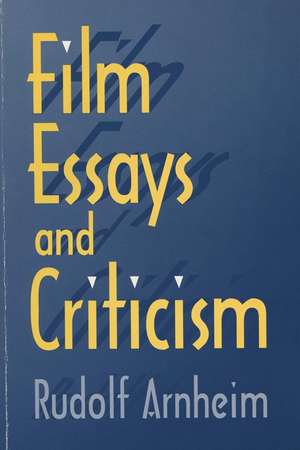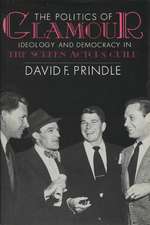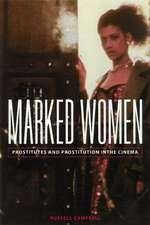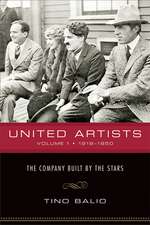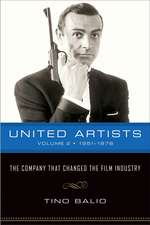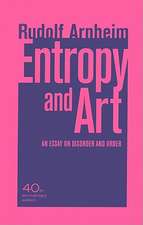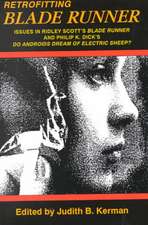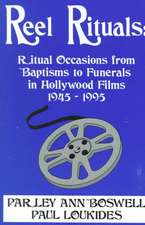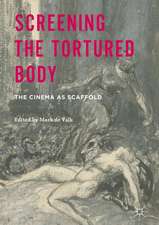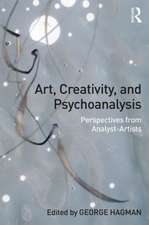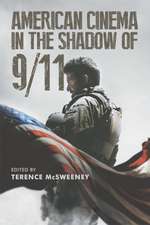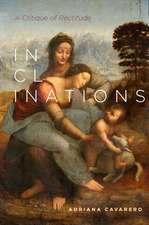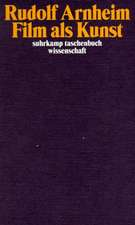Film Essays and Criticism: Wisconsin Studies in Film
Autor Rudolf Arnheimen Limba Engleză Paperback – 14 mar 1997
One of the world’s leading film theorists, Rudolf Arnheim has been well known to readers of English since the publication of his classic Film as Art in 1957. This is the first English translation of another of his important books, Kritiken und Aufsätze zum Film, which collects both film reviews and theoretical essays, most of them written between 1925 and 1940.
As a young man in 1920s Berlin, Arnheim began writing about film for the satirical magazine Das Stachelschwein. In 1928, as the Weimar Republic began to crumble, he joined the intellectual weekly Die Weltbühne as film critic and assistant editor for cultural affairs. His most important contributions to both magazines are published here, including witty and incisive comments on many of the great classics of the silent and early sound period, such as Buster Keaton’s The General and Fritz Lang’s Metropolis. With the advent of Nazism in Germany, Arnheim emigrated first to Italy, where he wrote essays (many included here) for a nascent Enciclopedia del Cinema, and then to England and the United States.
The thirty essays on film theory discuss elements of theory and technique, early sound film, production, style and content, and the relationship of film and the state. The fifty-six critical pieces include Arnheim’s thoughts on the practice of film criticism, his reviews of German, American, French, and Soviet films, and his profiles of Greta Garbo, Charlie Chaplin, Felix Bressart, Erich von Stroheim, and others. Also included in the volume are an introduction (newly revised by Arnheim) and a comprehensive bibliography.
As a young man in 1920s Berlin, Arnheim began writing about film for the satirical magazine Das Stachelschwein. In 1928, as the Weimar Republic began to crumble, he joined the intellectual weekly Die Weltbühne as film critic and assistant editor for cultural affairs. His most important contributions to both magazines are published here, including witty and incisive comments on many of the great classics of the silent and early sound period, such as Buster Keaton’s The General and Fritz Lang’s Metropolis. With the advent of Nazism in Germany, Arnheim emigrated first to Italy, where he wrote essays (many included here) for a nascent Enciclopedia del Cinema, and then to England and the United States.
The thirty essays on film theory discuss elements of theory and technique, early sound film, production, style and content, and the relationship of film and the state. The fifty-six critical pieces include Arnheim’s thoughts on the practice of film criticism, his reviews of German, American, French, and Soviet films, and his profiles of Greta Garbo, Charlie Chaplin, Felix Bressart, Erich von Stroheim, and others. Also included in the volume are an introduction (newly revised by Arnheim) and a comprehensive bibliography.
Din seria Wisconsin Studies in Film
-
 Preț: 157.82 lei
Preț: 157.82 lei -
 Preț: 170.96 lei
Preț: 170.96 lei -
 Preț: 132.18 lei
Preț: 132.18 lei -
 Preț: 234.69 lei
Preț: 234.69 lei -
 Preț: 165.74 lei
Preț: 165.74 lei - 11%
 Preț: 210.34 lei
Preț: 210.34 lei
Preț: 117.21 lei
Nou
Puncte Express: 176
Preț estimativ în valută:
22.43€ • 23.33$ • 18.52£
22.43€ • 23.33$ • 18.52£
Carte disponibilă
Livrare economică 24 martie-07 aprilie
Preluare comenzi: 021 569.72.76
Specificații
ISBN-13: 9780299152642
ISBN-10: 0299152642
Pagini: 304
Dimensiuni: 152 x 229 x 15 mm
Greutate: 0.36 kg
Editura: University of Wisconsin Press
Colecția University of Wisconsin Press
Seria Wisconsin Studies in Film
ISBN-10: 0299152642
Pagini: 304
Dimensiuni: 152 x 229 x 15 mm
Greutate: 0.36 kg
Editura: University of Wisconsin Press
Colecția University of Wisconsin Press
Seria Wisconsin Studies in Film
Descriere
One of the world’s leading film theorists, Rudolf Arnheim has been well known to readers of English since the publication of his classic Film as Art in 1957. This is the first English translation of another of his important books, Kritiken und Aufsätze zum Film, which collects both film reviews and theoretical essays, most of them written between 1925 and 1940.
As a young man in 1920s Berlin, Arnheim began writing about film for the satirical magazine Das Stachelschwein. In 1928, as the Weimar Republic began to crumble, he joined the intellectual weekly Die Weltbühne as film critic and assistant editor for cultural affairs. His most important contributions to both magazines are published here, including witty and incisive comments on many of the great classics of the silent and early sound period, such as Buster Keaton’s The General and Fritz Lang’s Metropolis. With the advent of Nazism in Germany, Arnheim emigrated first to Italy, where he wrote essays (many included here) for a nascent Enciclopedia del Cinema, and then to England and the United States.
The thirty essays on film theory discuss elements of theory and technique, early sound film, production, style and content, and the relationship of film and the state. The fifty-six critical pieces include Arnheim’s thoughts on the practice of film criticism, his reviews of German, American, French, and Soviet films, and his profiles of Greta Garbo, Charlie Chaplin, Felix Bressart, Erich von Stroheim, and others. Also included in the volume are an introduction (newly revised by Arnheim) and a comprehensive bibliography.
As a young man in 1920s Berlin, Arnheim began writing about film for the satirical magazine Das Stachelschwein. In 1928, as the Weimar Republic began to crumble, he joined the intellectual weekly Die Weltbühne as film critic and assistant editor for cultural affairs. His most important contributions to both magazines are published here, including witty and incisive comments on many of the great classics of the silent and early sound period, such as Buster Keaton’s The General and Fritz Lang’s Metropolis. With the advent of Nazism in Germany, Arnheim emigrated first to Italy, where he wrote essays (many included here) for a nascent Enciclopedia del Cinema, and then to England and the United States.
The thirty essays on film theory discuss elements of theory and technique, early sound film, production, style and content, and the relationship of film and the state. The fifty-six critical pieces include Arnheim’s thoughts on the practice of film criticism, his reviews of German, American, French, and Soviet films, and his profiles of Greta Garbo, Charlie Chaplin, Felix Bressart, Erich von Stroheim, and others. Also included in the volume are an introduction (newly revised by Arnheim) and a comprehensive bibliography.
